Japanese Podcasts With Transcripts That Make Studying Fun!
Podcasts are a great way to improve your listening and comprehension skills while learning a new language. Having the ability to listen to a language is convenient, enjoyable, and essential to learning a language. One of the best features of learning via podcasts is that it can be done virtually anywhere. Whether you are exercising, doing chores, or driving your car, listening to podcasts is the perfect hack to increase your exposure and develop familiarity with a language.
We allow new languages to come into our minds through input. There are two types of input: listening and reading. Historically, listening has been around much longer than reading, which could explain why it is absolutely vital for people to listen in order to learn new languages. It’s also quite easy and fun to do! While you are listening to a new language, be attentive and try to understand what is being said. Without effort, you are simply hearing an unfamiliar language rather than listening effectively.
Japanese podcasts are a great way to fit extra listening practice into your day, and if you have access to transcripts, they can be a great way to practice reading too. With that in mind, here’s a list of podcasts that are great for studying.
Beginner Japanese Podcasts
Learn Japanese Pod
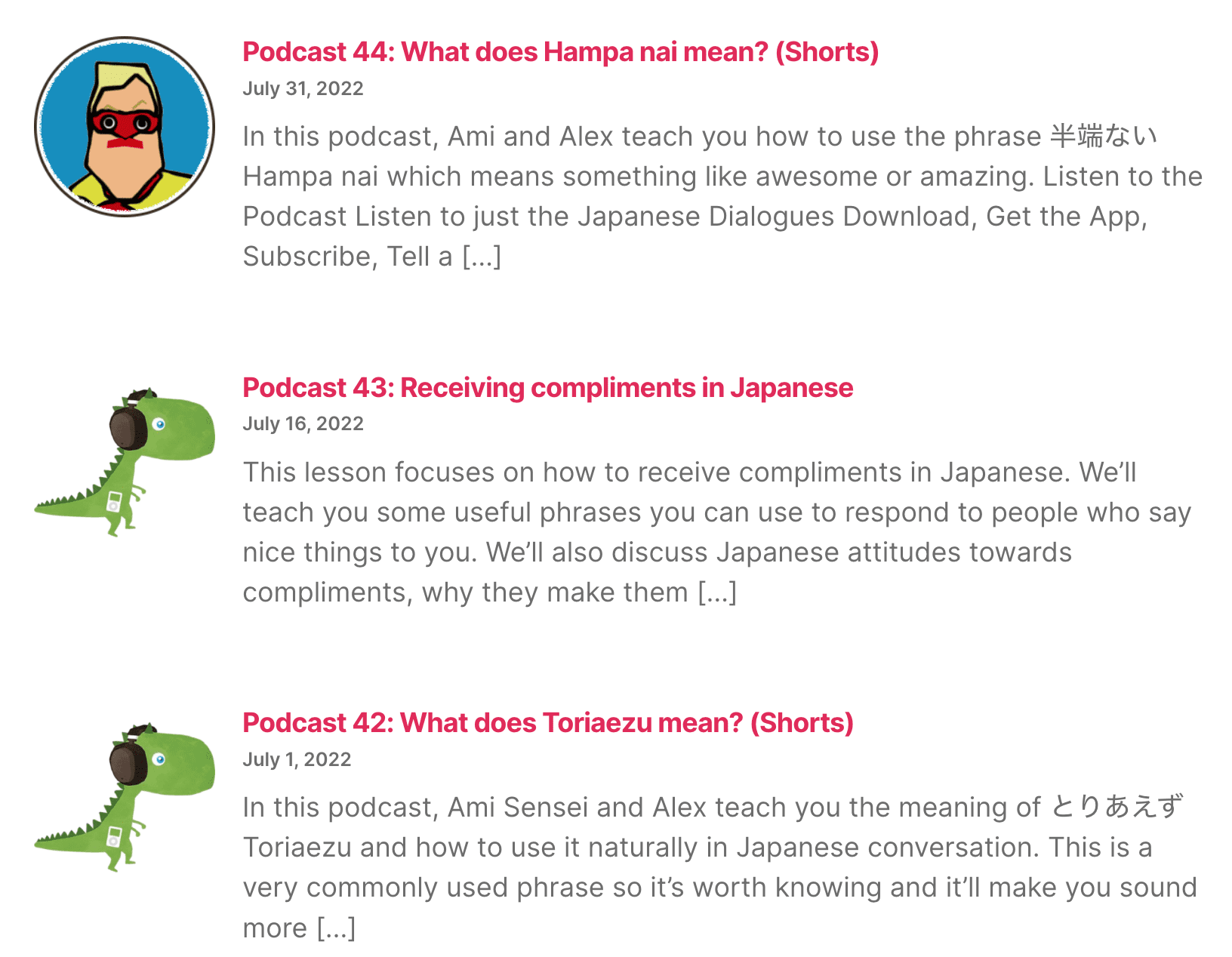
One of the best podcasts for beginners is the Learn Japanese Pod. There are plenty of episodes covering all sorts of topics, giving you plenty of material to study. Each episode comes with the script in Japanese, and a translated transcript so you know exactly what is being said.
The hosts switch between English and Japanese regularly which is great for beginners who might be overwhelmed with an all Japanese language podcast, and for those who might not be able to access the scripts.
What really sets this podcast apart is the quality. Not only are the voices crisp, clear and easily understood, but every example sentence is carefully thought out and repeated multiple times. The hosts do a good job of making it accessible for everyone.
A lot of the podcast episodes are free, but signing up on their website gives you access to more material. If you want absolutely everything the site offers, you will need to pay for a membership.
The Bite Size Japanese
Check out The Bite Size Japanese podcast and read the transcripts on LingQ. Improve your listening skills with Layla who is motivated to help people learn Japanese through enjoying Japanese content like her podcast. There are currently 192 episodes available to study!
Study the episodes as Japanese lessons on LingQ.
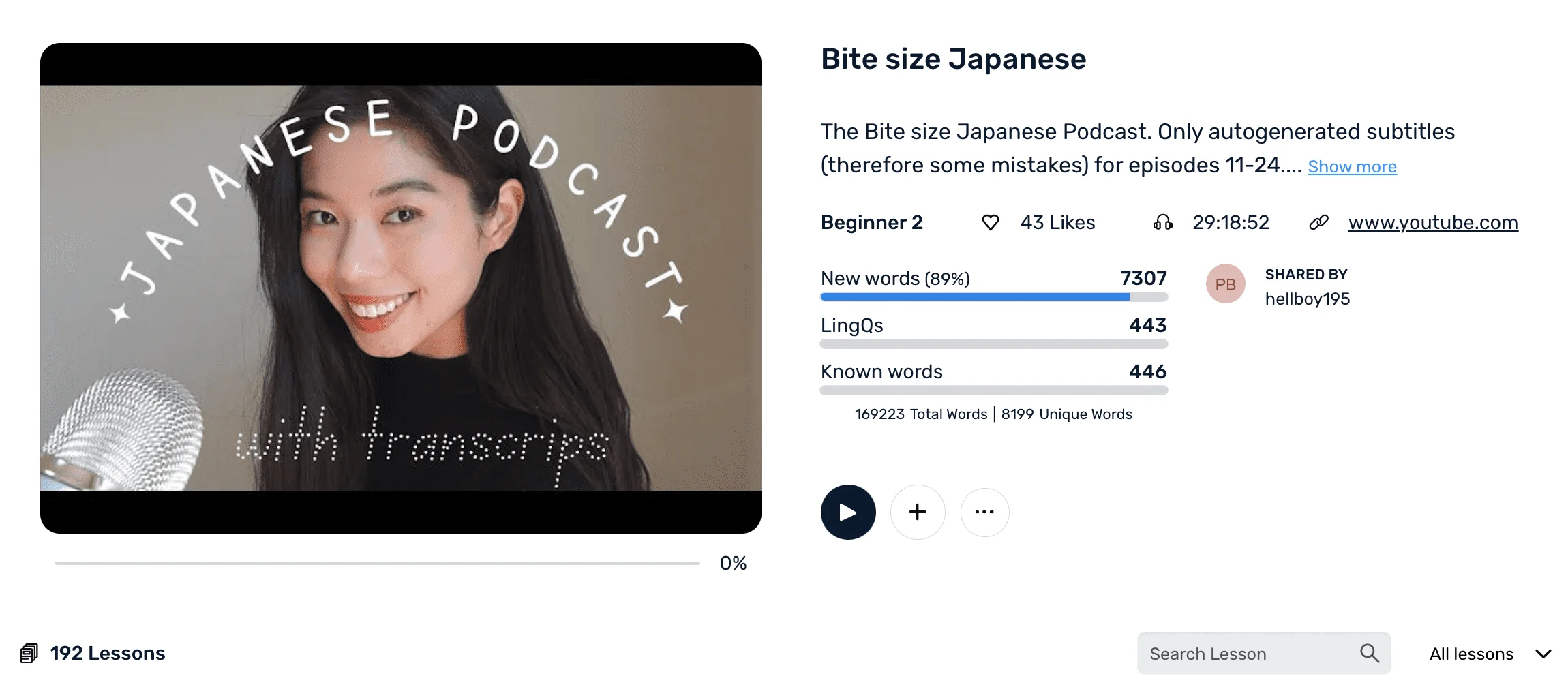
Learn Japanese on LingQ
Podcasts can be a great way to improve your listening skills, but sometimes listening is not enough. If you want to get more out of your studying, rather than just listen, you should also be reading. That’s where the transcripts and LingQ come in handy.
Let me show you how using News in Slow Japanese. First, copy the transcript and import them into LingQ. You can find the import button at the top right of your page.
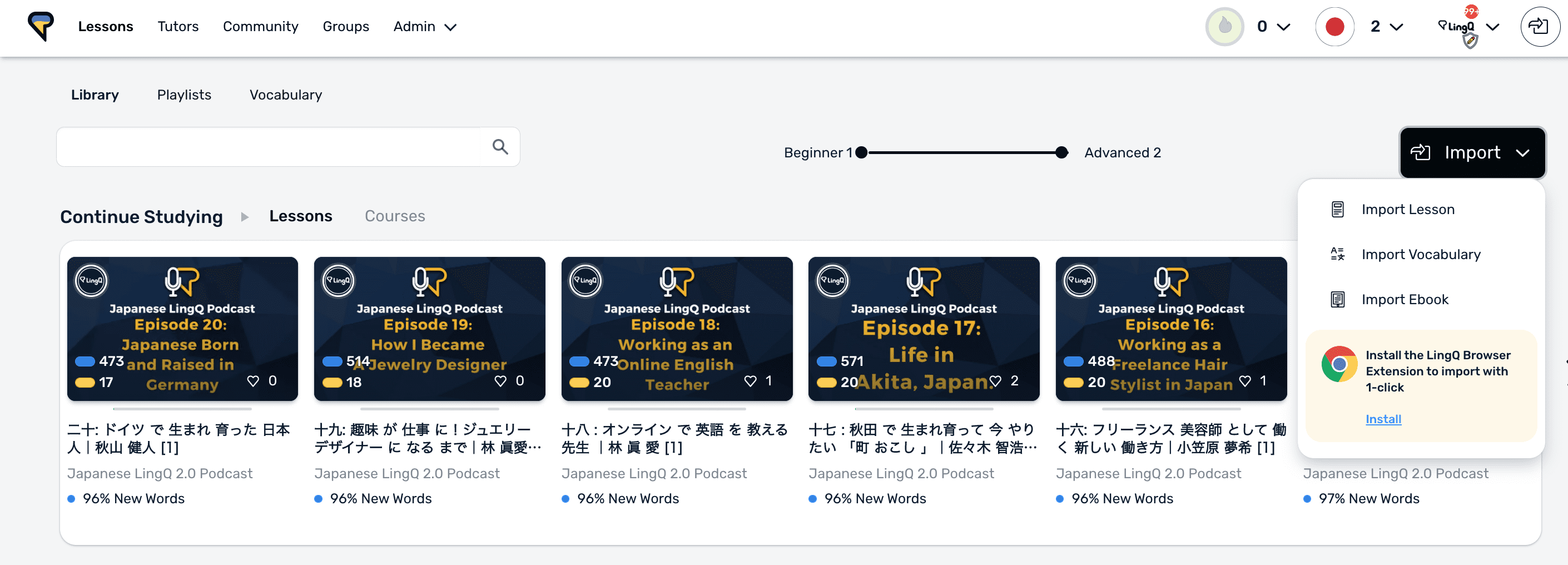
Paste in your transcript and upload the audio. You can also add pictures and edit clips to help you take advantage of LingQ’s sentence mode feature.
Afterwards, save your lesson and begin studying. Listen, read, and save your new vocabulary for review. If you want to improve your Japanese faster, than this is the way to go.
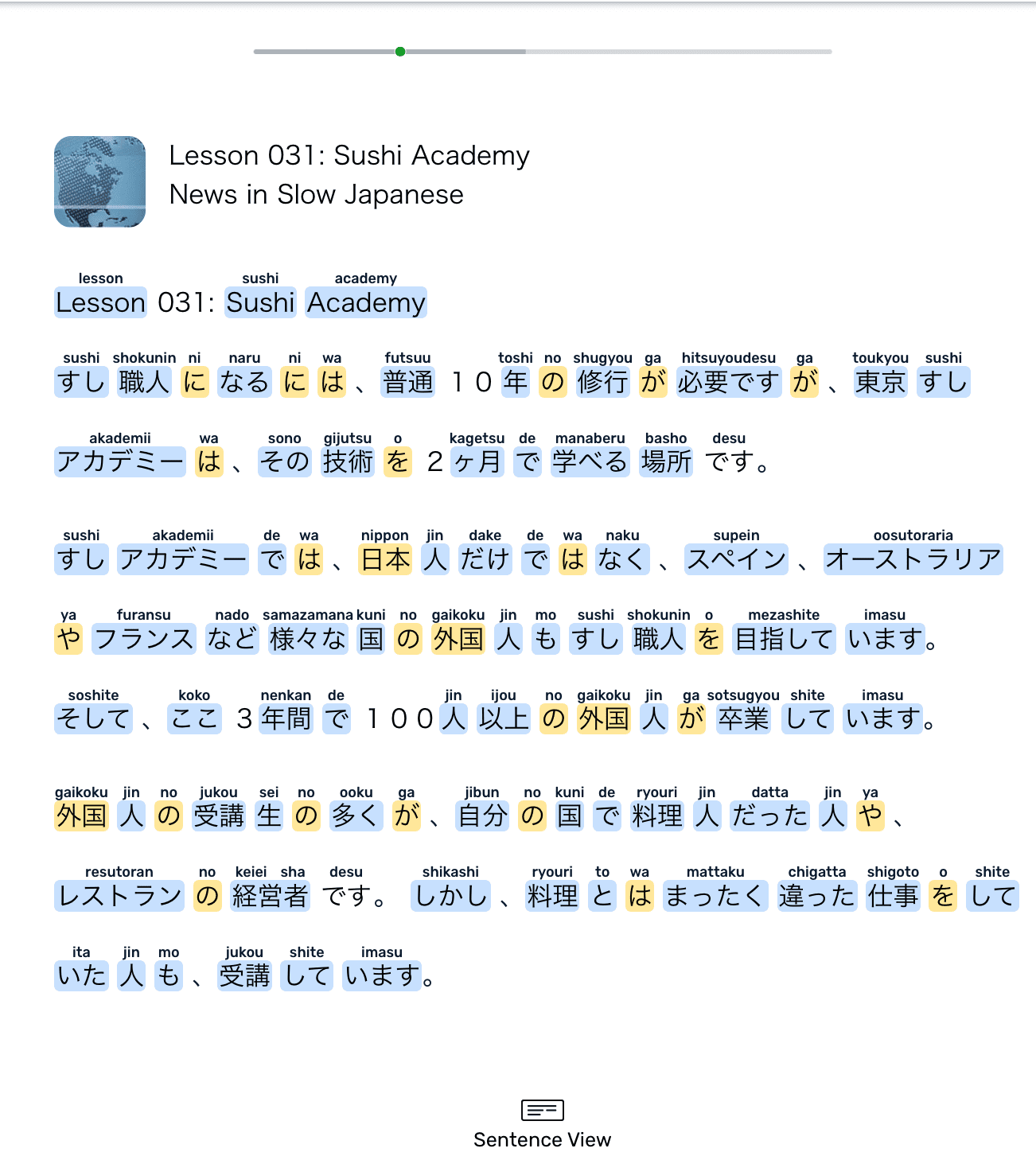
Don’t forget, you can also use it on mobile and take it on the go.
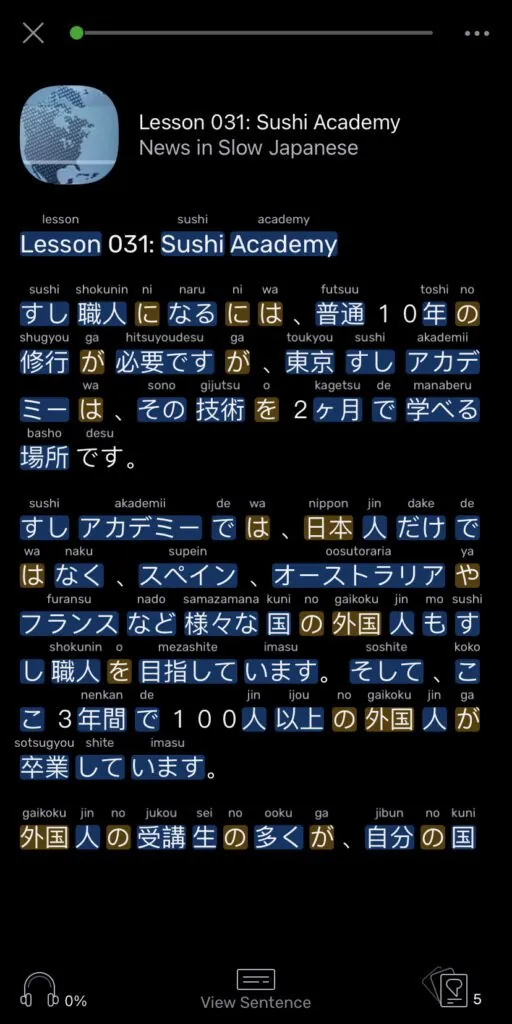
LingQ not only allows you to import Japanese podcasts, but you can import anime, YouTube videos, music, and more. Check out LingQ for free and start learning Japanese online.
Intermediate Japanese Podcasts
Japanese LingQ Podcast
The Japanese LingQ Podcast is an excellent resource for intermediate learners.
The show is currently on its second season. Season one features polyglot Steve Kaufmann who is fluent in Japanese and lived in the currently for nine years as a Canadian diplomat. Steve chats in clear Japanese with interesting guests on topics ranging from Japanese fashion, J-pop and the occult!
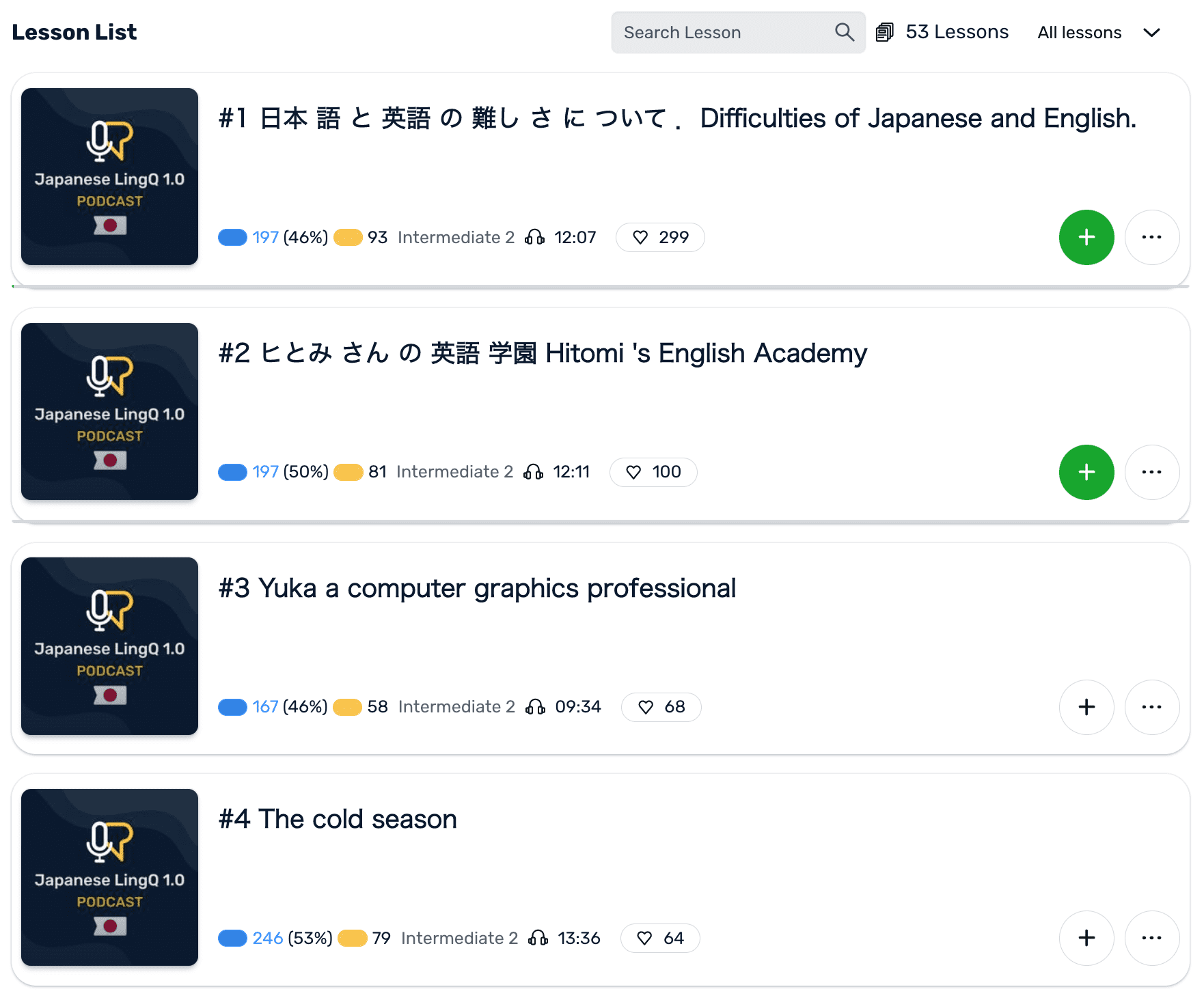
Season two of the Japanese LingQ Podcast is still underway. Host Natsumi talks with diverse guests each episode and each one is turned into a lesson on LingQ for you to work through as you listen. You can catch new episodes on the LingQ YouTube channel or listen on Apple, Google, Spotify or SoundCloud.
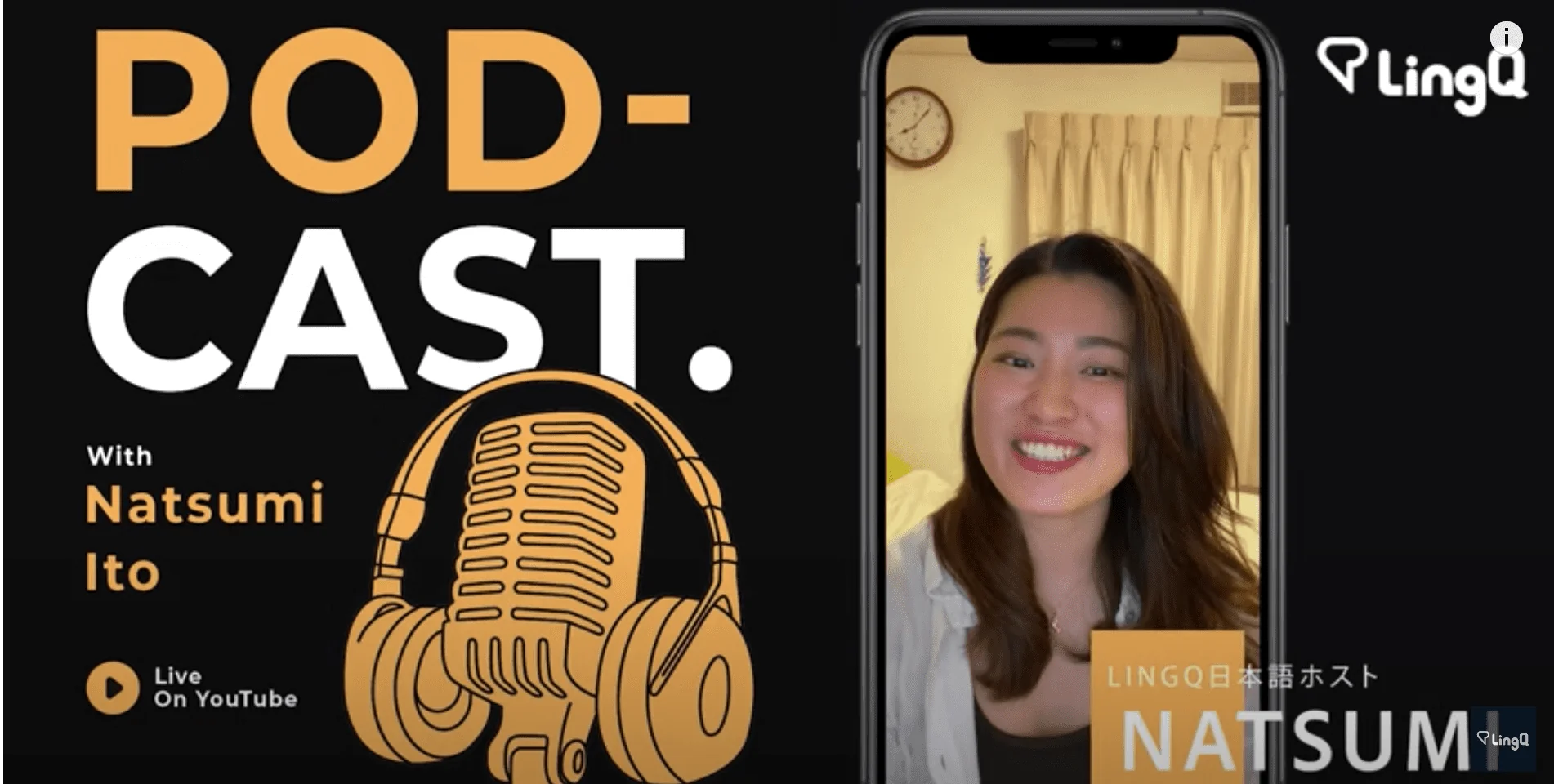
Study the episodes as Japanese lessons on LingQ:
Japanese with Noriko
Noriko is a Japanese teacher and podcaster living in Northern Ireland. She is currently recording season two of her podcast and there are hundreds of past episodes in seasons one and two to listen to.
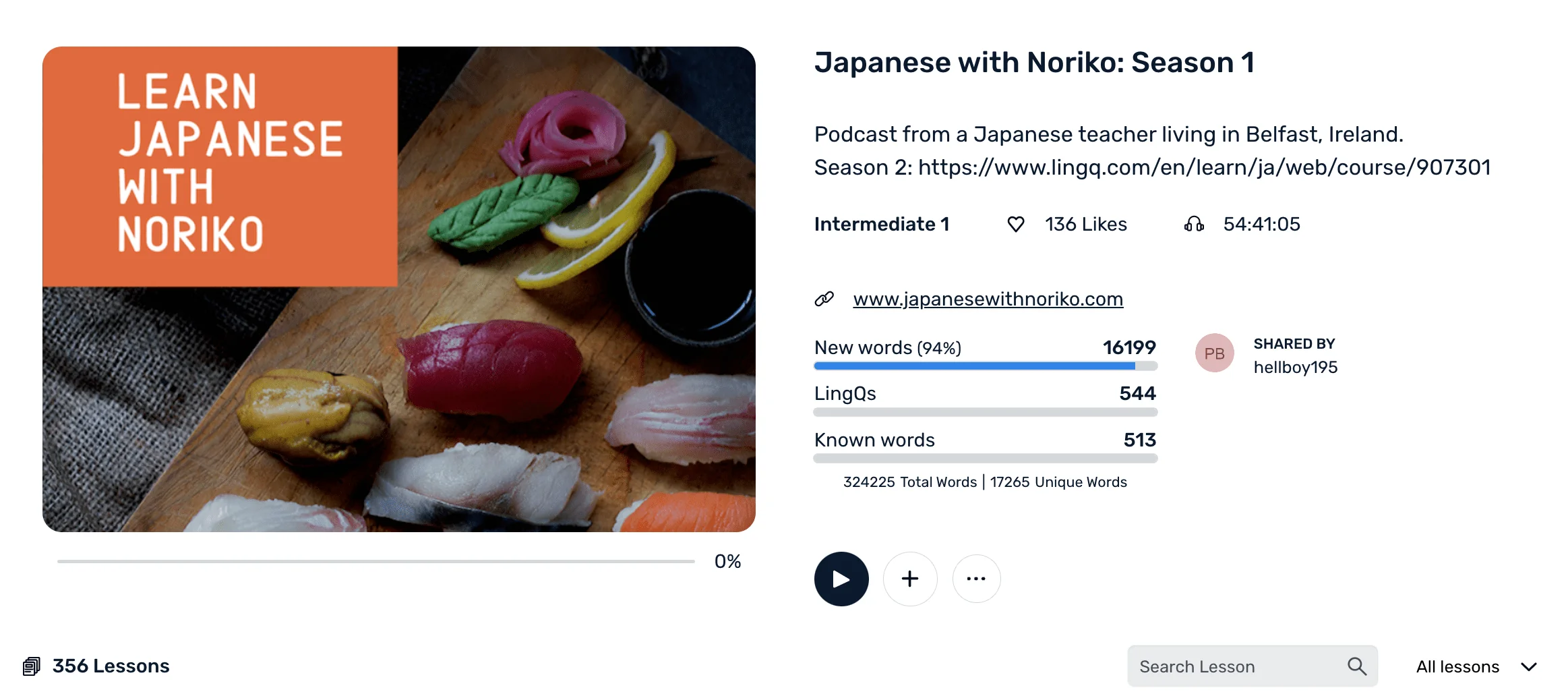
For Intermediate learners, Japanese with Noriko is a great choice. The audio quality of this podcast is excellent.
Study the episodes as Japanese lessons on LingQ.
News in Slow Japanese
One of the issues with podcasts is a lack of quality content. This is particularly true of language learning podcasts, where a large variety of topics is vital for keeping interest. This is where News in Slow Japanese really shines, with episodes dating back to 2013, covering an enormous range of issues.
The show follows general trends, but focuses on more interesting aspects of culture, instead of the bleak day-to-day news you see on TV and in newspapers.
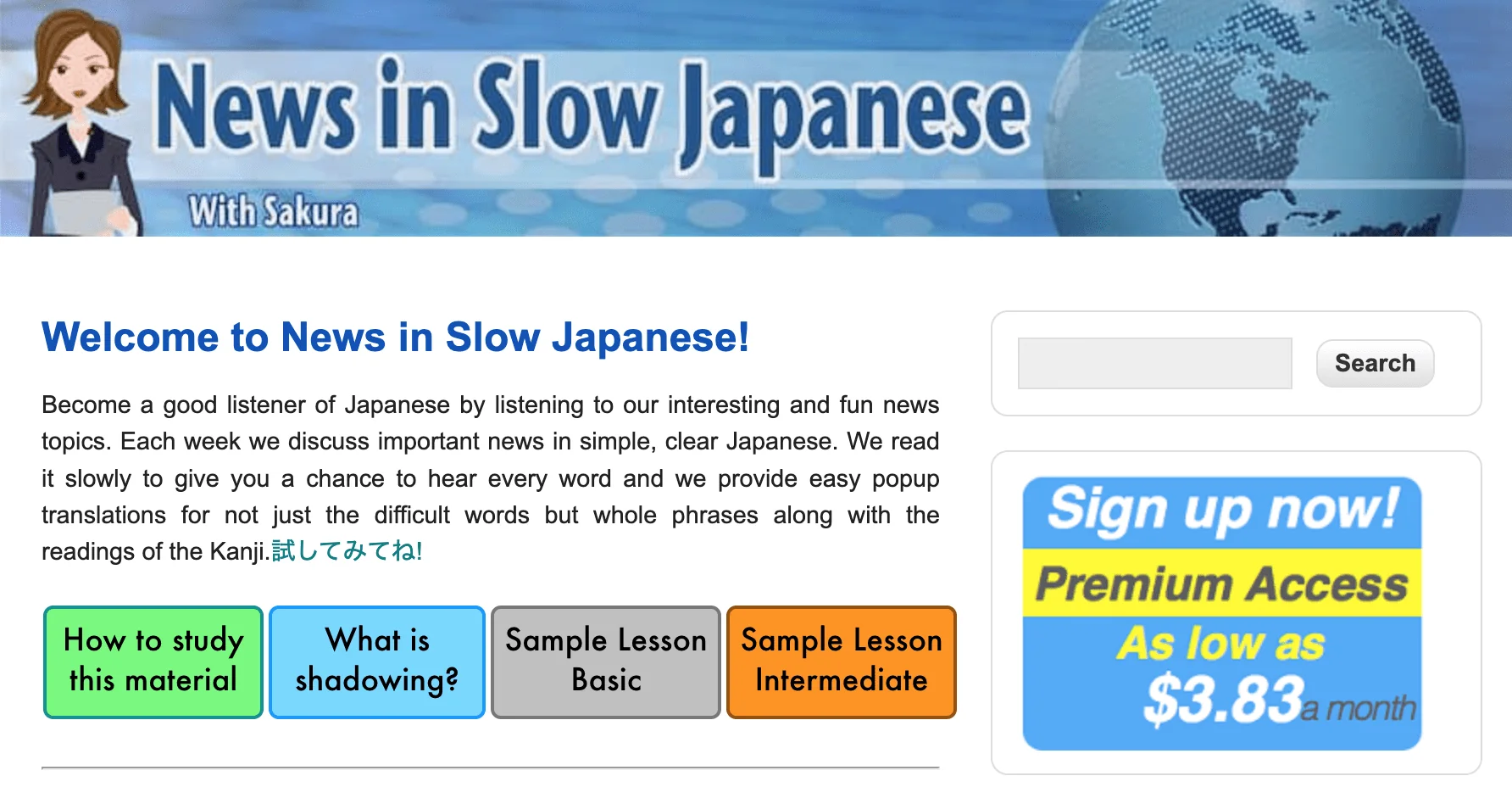
Each audio file comes with a fast and slow version, which helps bridge that awkward gap between beginner and intermediate. One excellent addition to the transcripts is the addition of a mouseover dictionary feature. If you are using a PC, you can hover over a word you do not understand, and a translation of the entire sentence will appear. It’s a small feature, but it is incredibly useful.
The biggest downside is that a lot of the content is for premium members only. This includes a lot of the podcasts, and any study materials to go with them. The lack of variety in the voices might put some people off (the website is run by one woman) but if you do not mind her voice, it should not be a problem.
Although the ‘fast,’ version is closer to native speed, it is still not quite at a native speaker’s pace. If you are coming to the site as a beginner or lower intermediate learner this should not be a problem, but more advanced listeners might want something that is more challenging.

